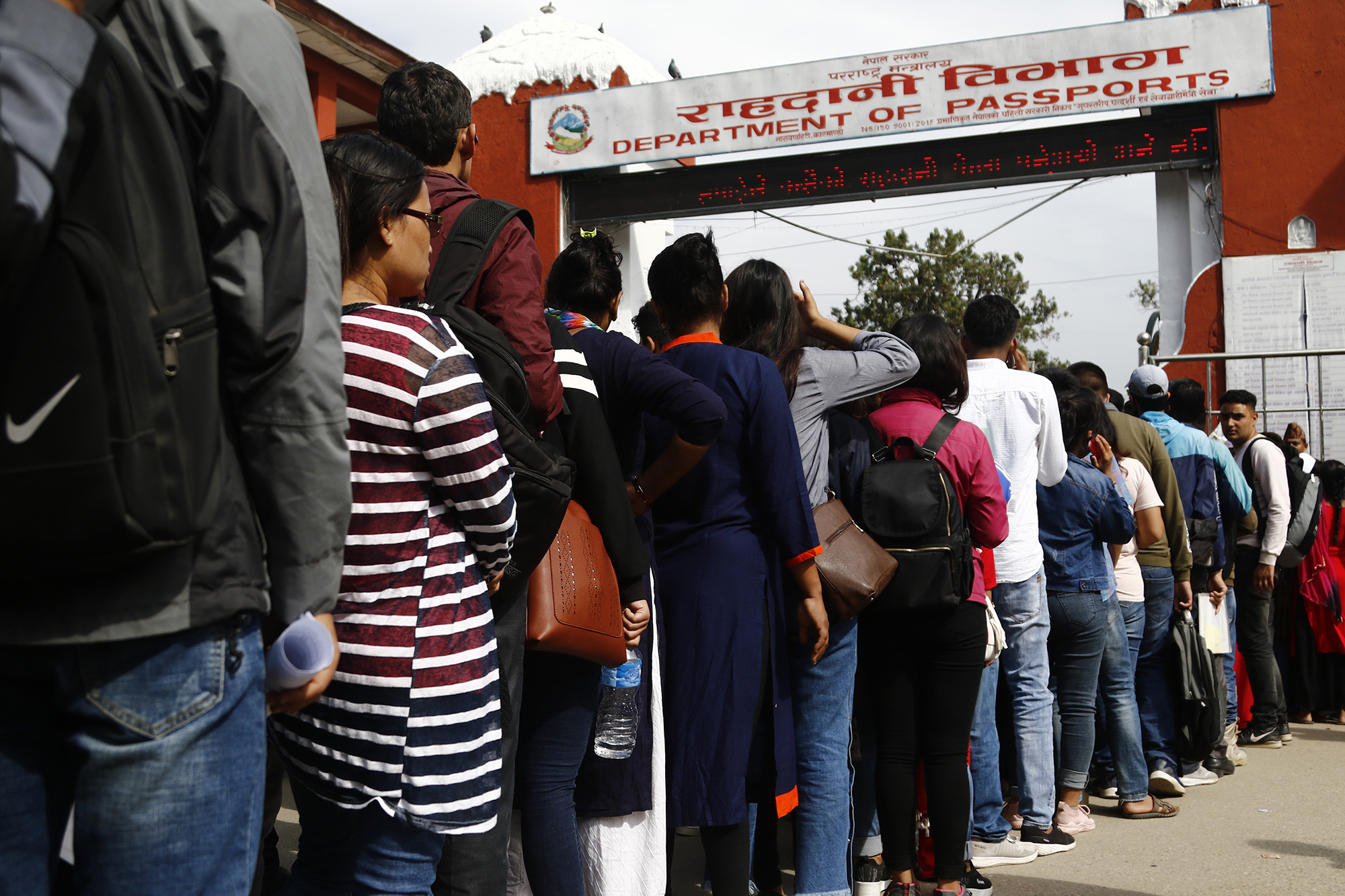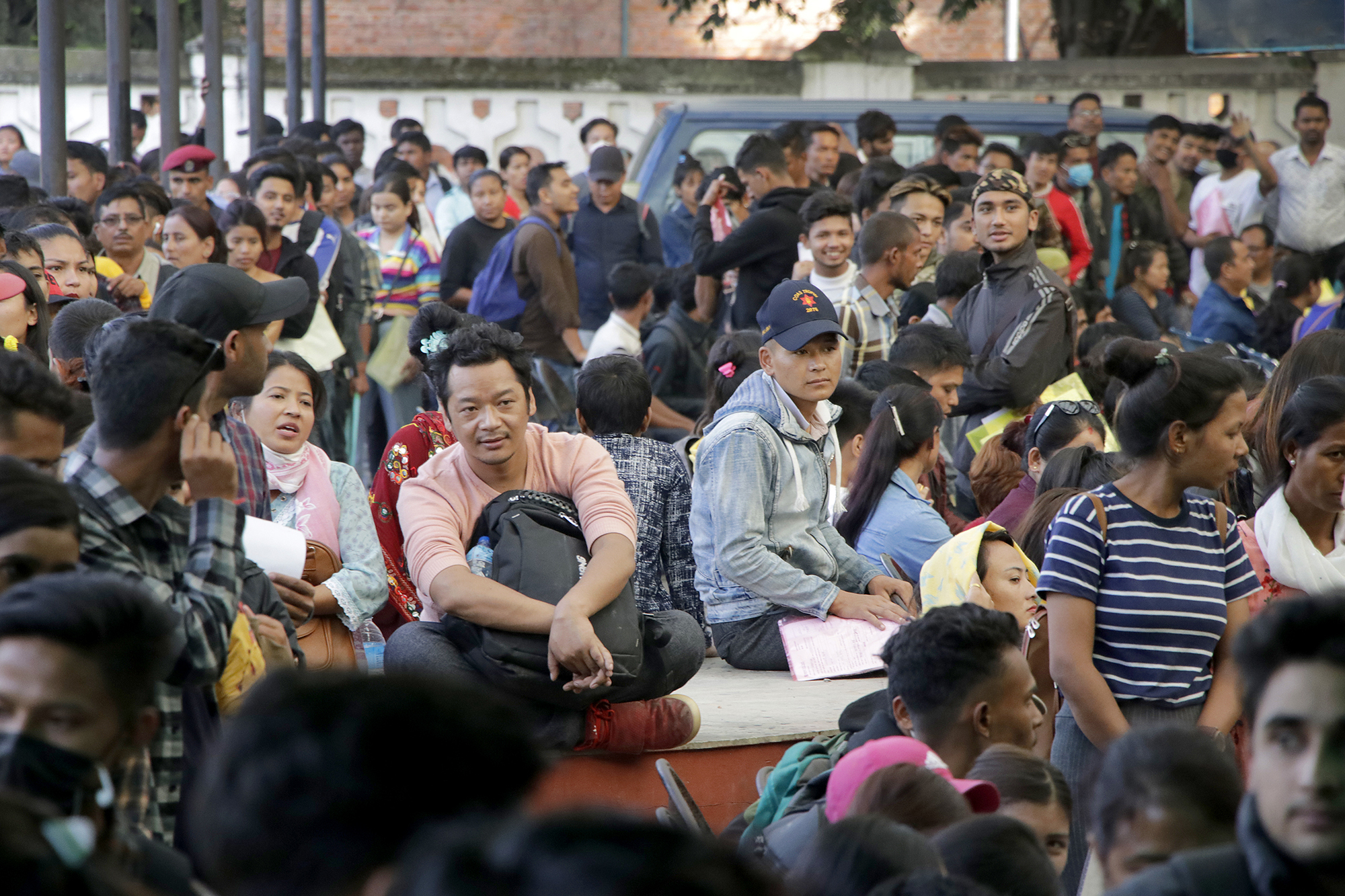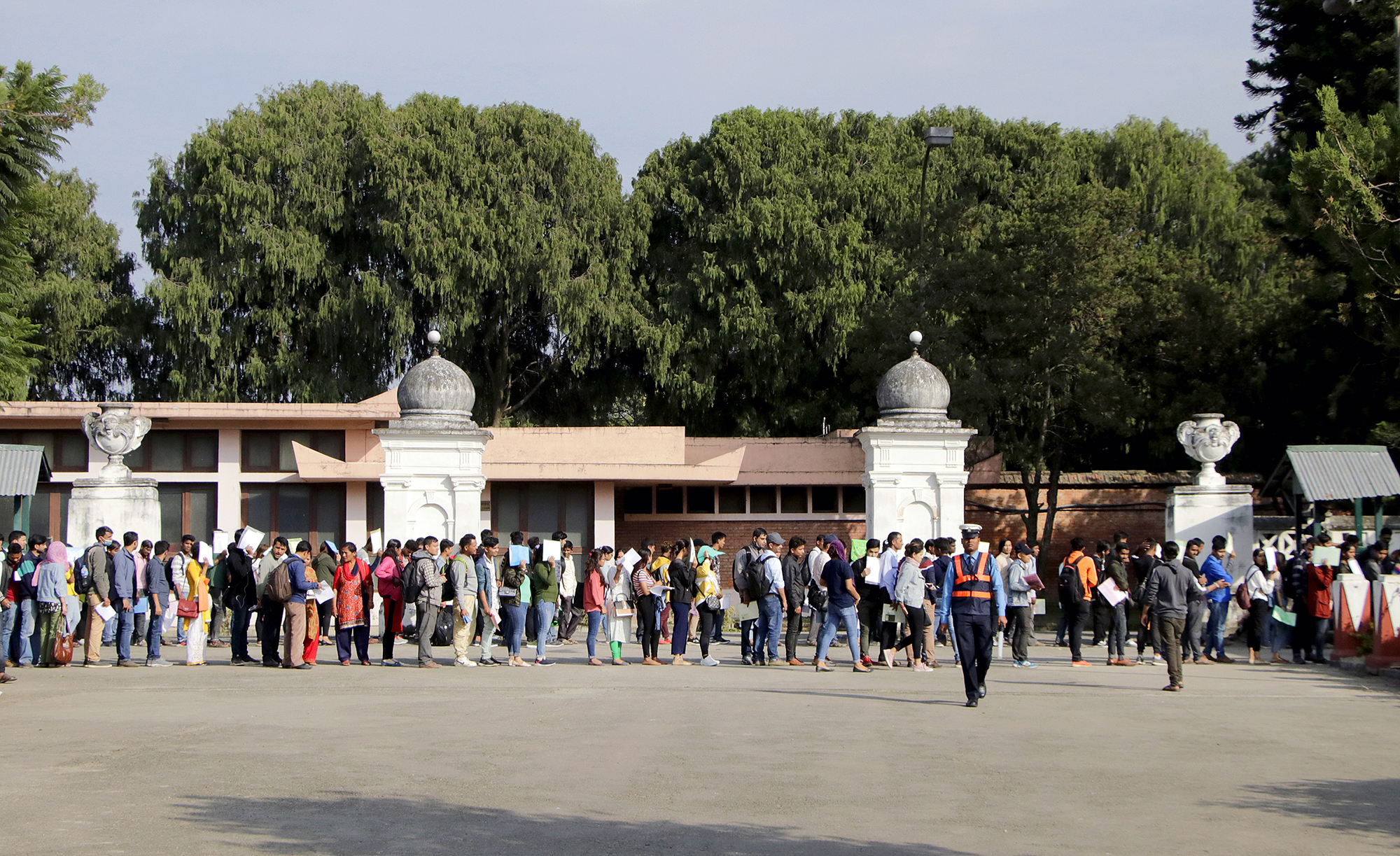Nepalis are flocking to make passports after US makes it mandatory for Diversity Visa application

After three days of constant waiting at the Department of Passports, siblings Sanjita Ghalan and Binu Ghalan finally received their passports. They promptly went to New Road and registered themselves for the United States’ 2019 Diversity Visa lottery—the first step to their American dream.
Every year, the US allows 50,000 people from countries with low rates of immigration to legally enter the country on its Diversity Visa programme. Although the Diversity Visa programme is a lottery, Nepalis have consistently been among the highest recipients of this visa, accounting forseven percent of all immigrants on the programme, according to the US State Department. Between 2008 and 2017, a total of 26,569 Nepalis immigrated to the US on the Diversity Visas, according to a report from the State Department.
But now that the US has made passport numbers mandatory in its visa application, Nepalis are lining up in record numbers to get their passports. The Department of Passports is printing roughly 4,000 passports every day now, compared to around 900 earlier, according to Ram Kaji Khadka, director general of the department.
“After the US enforced mandatory passport numbers in diversity visa applications, the number of people applying for passports has increased four-fold,” said Khadka.
Normally, the department opens its counters from 9 am to 5 pm. Since the surge in applicants, Khadka said the office has been opening its facility from 8am to 10pm.
The upsurge of clients in the department to make machine-readable passports has been exerting additional pressure on officials at the passport department since last week. The department has added four more counters for the public, making it 14 counters for ordinary people to register their names. The centralised passport department prints passport for 77 districts, 18 area administration offices and 38 Nepali missions abroad.

Nepalis line up outside the Department of Passports to apply for their document. Post Photo: Keshav Thapa
The Ghalan siblings had come to Kathmandu from Hetauda in Makwanpur district to get their passports and register for Diversity Visa. They paid Rs10,000 each to get a new passport through the department’s expedited service.
“I am jobless here even after I completed my degree and I do not see any hope in the country,” said 27-year-old Sanjita Ghalan, who holds a Master’s degree in education. “You know the political situation here.”
Her sister Binu Ghalan, 19, is a higher secondary graduate in management. They stayed at their relative’s place in Bhaktapur until the official work was done and left for Hetauda.
“Our parents sent us to Kathmandu after America made it mandatory to have a passport to apply for Diversity Visa,” said Binu.
Sarika Malla, a manager at one of the most sought-after firms—E-Spot—to fill out Diversity Visa applications in Kathmandu, said approximately 600 people come to fill up the DV application every day.
“We’d thought the number of people filling up Diversity Visa forms will go down due to mandatory passport requirement, but that hasn’t happened,” Malla said, whose office has mobilised some 100 employees in their building to fill up the forms.

The passport department has extended hours of operation to meet the demand for application. Post Photo: Anish Regmi
This year the US State Department opened the annual lottery programme on October 3 and is going to close it at 10:45pm on November 7.
“America is a dream destination for people in a developing country like ours,” said anthropologist Suresh Dhakal, citing reports of hundreds of Nepalis paying hefty amounts through illegal channels to make their way into the United States. “Many are stranded on the way, robbed and killed but still can’t reach their destination. So, diversity visa is the easiest way out.”
To garner more visitors, many private agencies that help prepare Diversity Visa application forms have made lucrative offers. For example, Ample Communication and IT Service in Lagankhel has been offering 18 free passport size photos for free to those who use their service. The firm charges Rs200 per person.
When the Post reached the Passport Department on Tuesday morning, the front gate of the office was filled with people, mostly youths, their parents and even elderly people who were queuing to apply for a passport. By afternoon, the department area becomes a nightmare, leading to traffic disruptions, and also allowing hawkers to sell water, biscuits and noodles for those who are waiting to submit their application.

Nepalis are lining up in record numbers to get their passports made. Post Photo: Anish Regmi
Kalpana Pariyar, 37, was among those waiting at the department, with her daughter Swaraswati, a high school graduate from Kakaney Rural Municipality. She had come there at 6am and got in the queue.
“If my daughter is lucky enough in the lottery, our whole family can go there. If not, this passport will be useful for her further studies as well,” said Pariyar.
The department charges Rs5,000 for normal service under which an individual can get a new passport within a month from any district. For urgent service, the department charges Rs15,000 for a new passport that would be handed to the applicant within a day, Rs12,000 for delivery within two days, and Rs10,000 for delivery in three days.
“In the past two weeks, more than 70 percent people have applied to get their machine-readable passports in three days. Of those, 60 percent applicants are in the age group of 18 to 30 years,” said Khadka director general of the department.
The Department of Foreign Employment had made it mandatory for Nepali citizens to have machine-readable passports beginning May 15, 2014. The government had begun the practice of printing machine-readable passports from December 2010 onward, replacing traditional handwritten passports.
According to the department’s data, it has issued 6.1 million machine-readable passports till date.